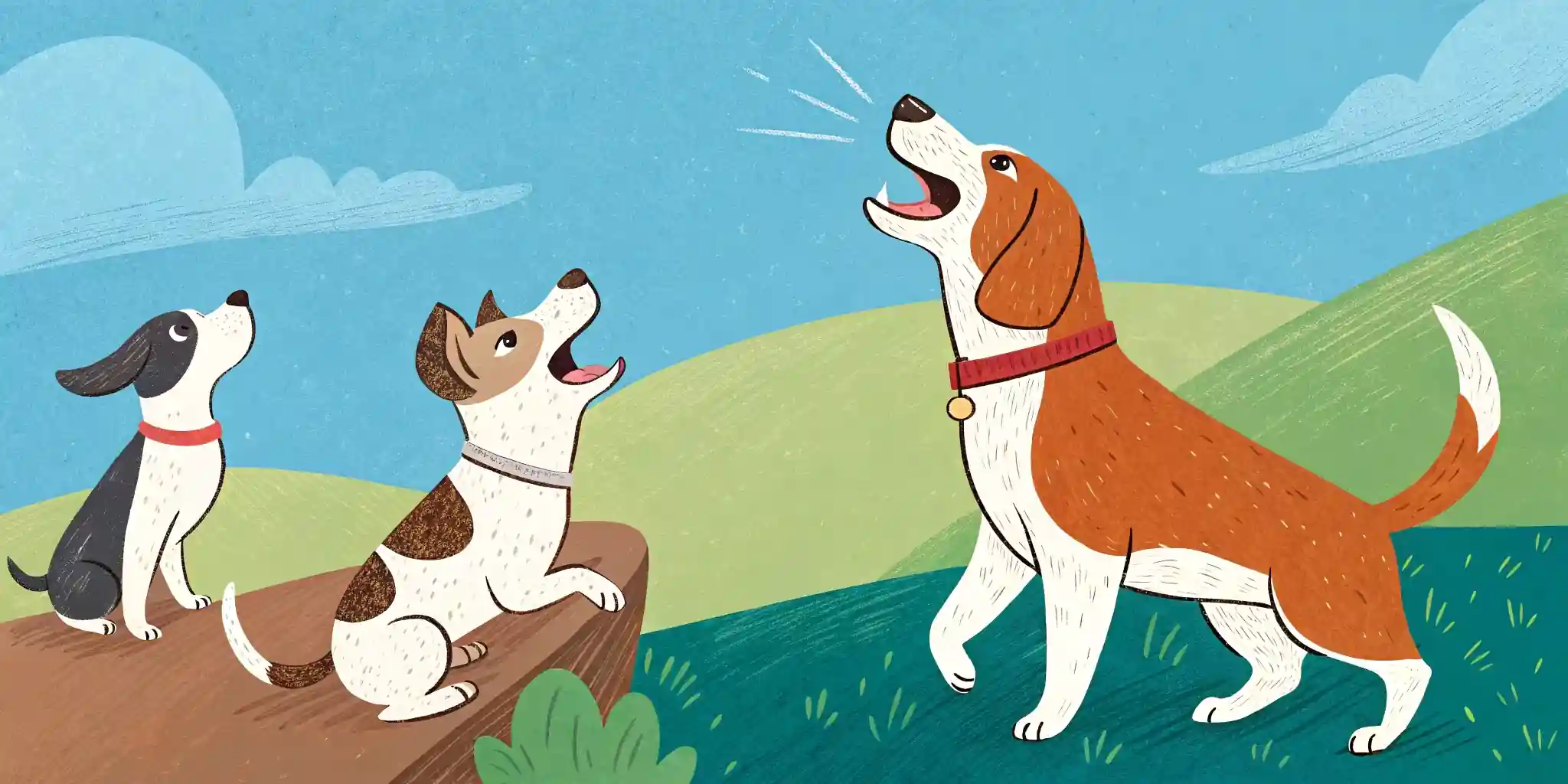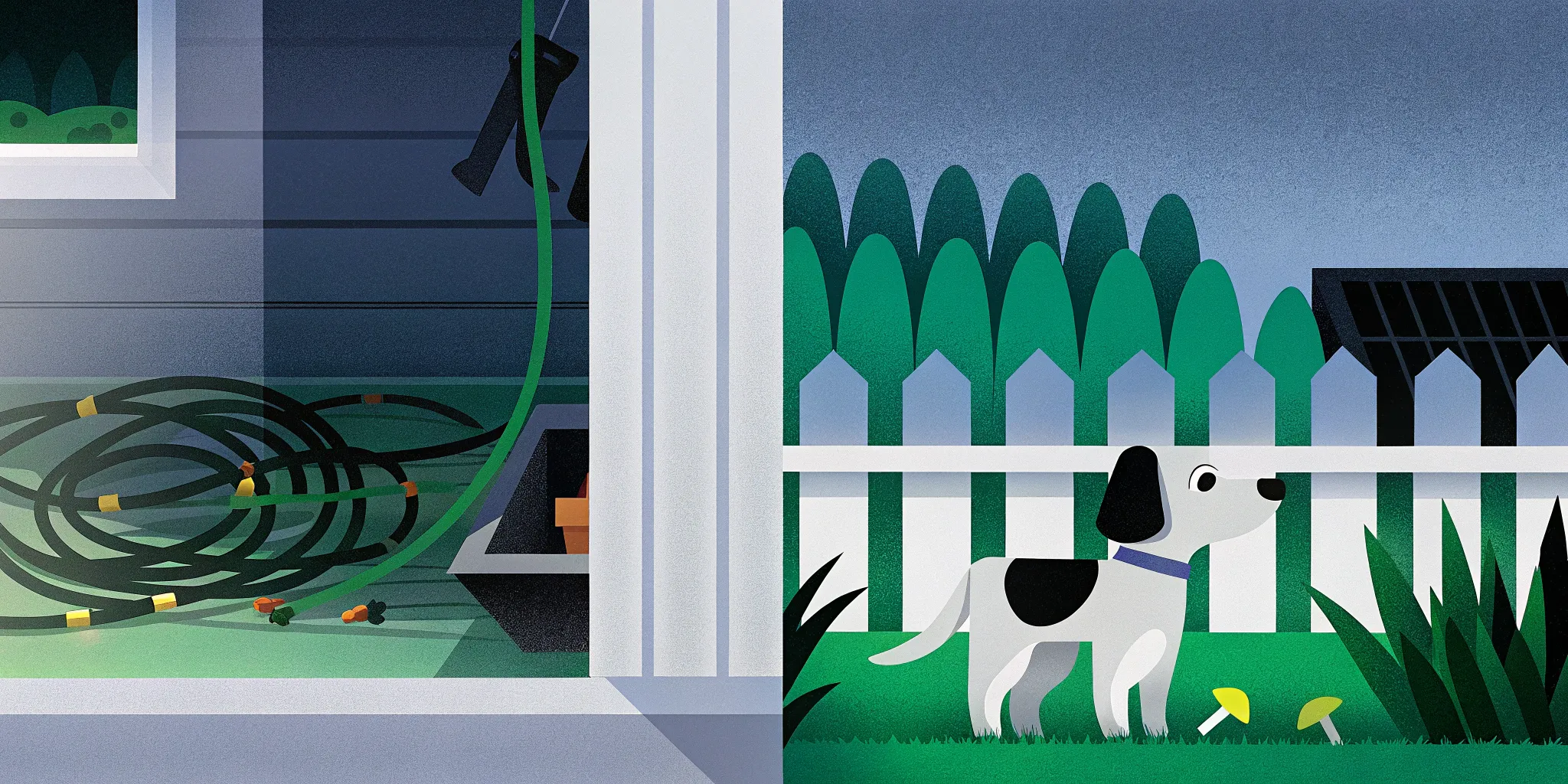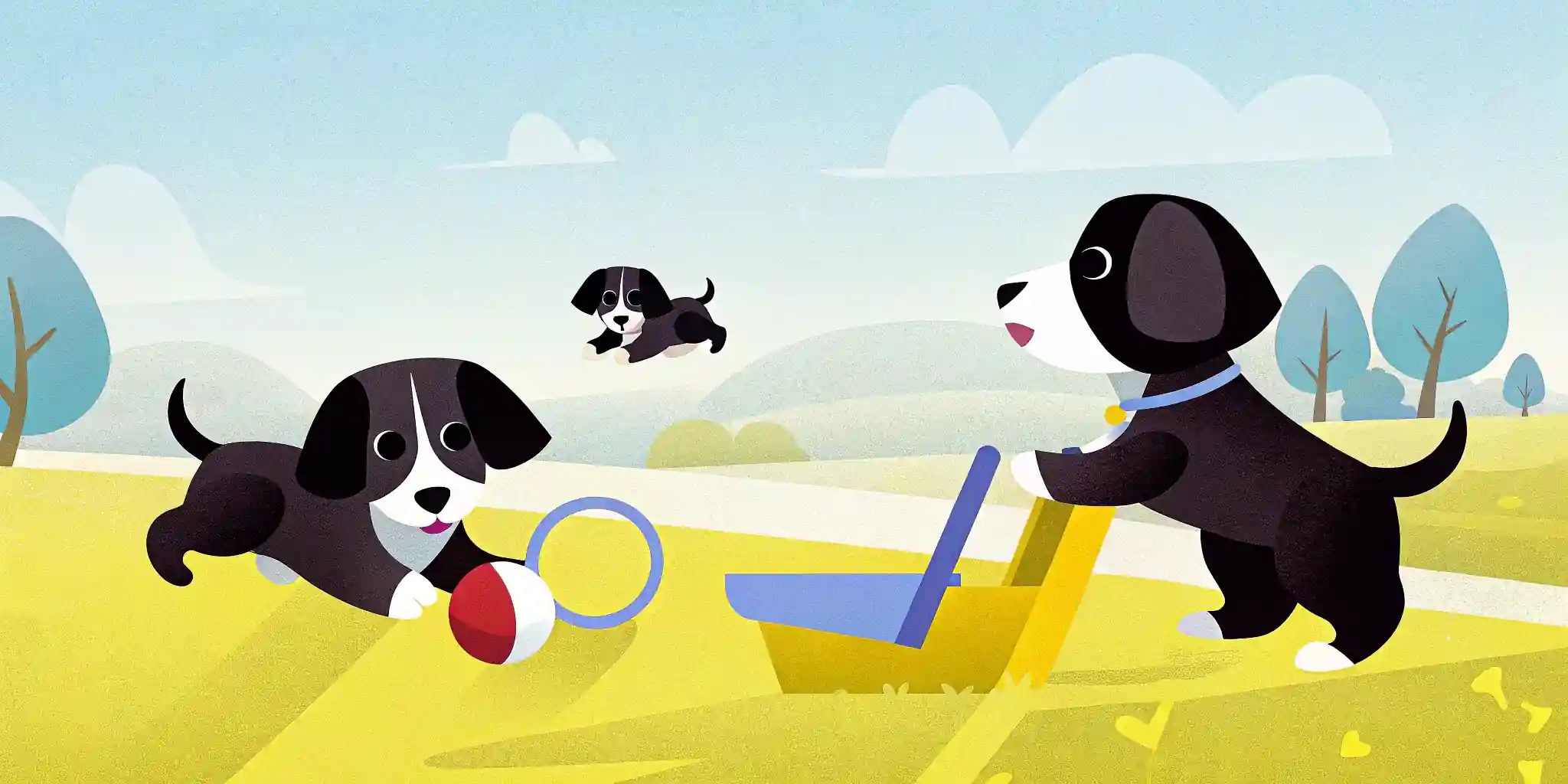
Puppy Playtime: Games for Healthy, Happy Pups
Puppy playtime perfection! Discover fun, safe games & exercises for healthy development. Is your pup getting the right activity?
Playtime Power: Appropriate Games and Exercise for Growing Pups
Bringing a puppy into your life is one of the most rewarding experiences imaginable. Those big, innocent eyes, the clumsy paws, and the boundless energy are simply irresistible. But along with the cuddles and cuteness comes a responsibility to ensure they grow into healthy, well-adjusted adults. And a huge part of that? Playtime!
But not all playtime is created equal, especially for growing puppies. Too much, too soon, or the wrong kind of activity can actually do more harm than good. So, let’s dive into the wonderful world of puppy playtime and discover how to harness its power for their physical and mental well-being.
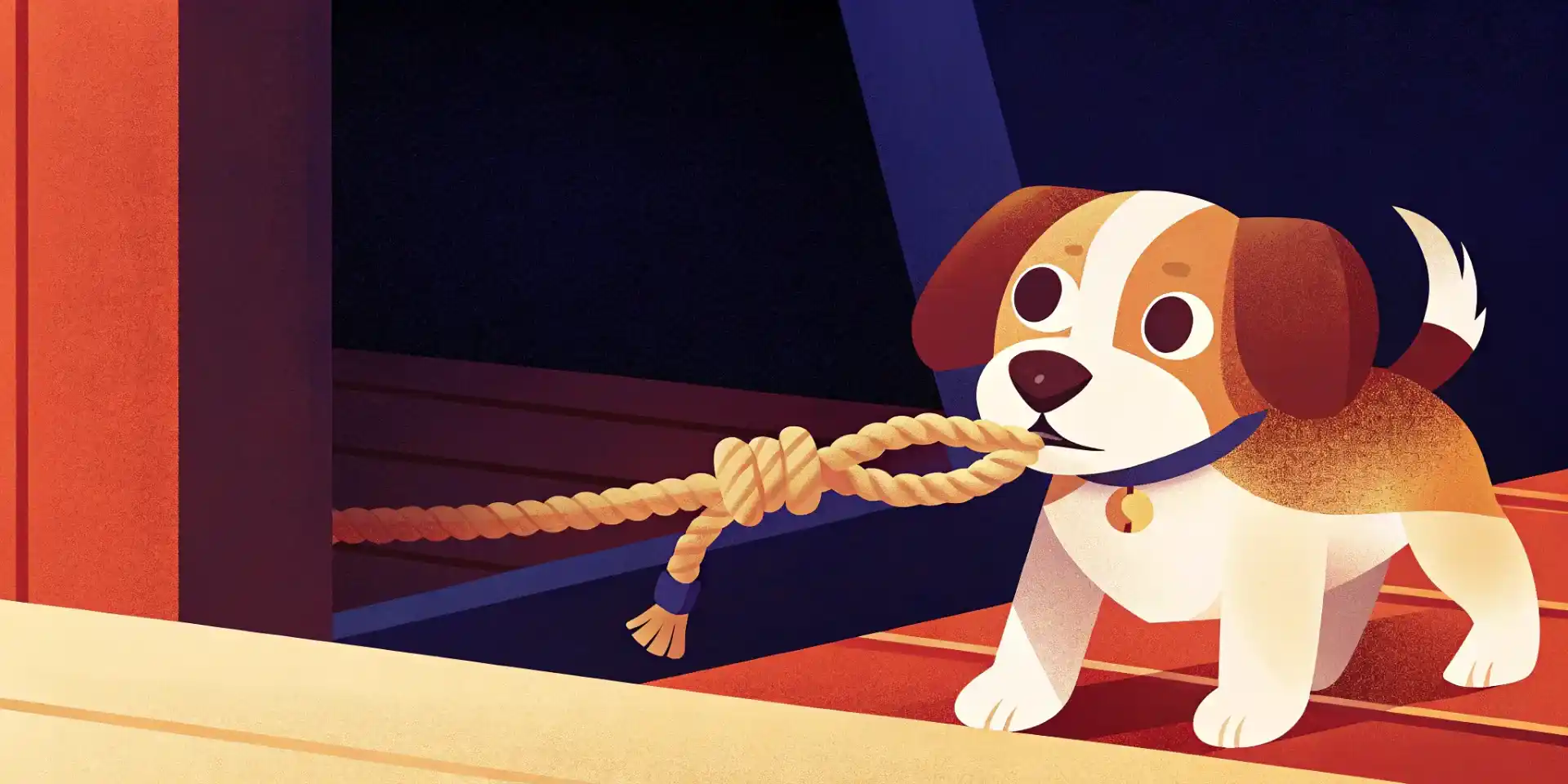 Image: A happy Golden Retriever puppy enthusiastically playing tug-of-war with a rope toy.
Image: A happy Golden Retriever puppy enthusiastically playing tug-of-war with a rope toy.
Why Playtime is Crucial for Puppies
Playtime isn’t just about burning off excess energy. It’s a critical component of a puppy’s development, contributing to:
- Physical Development: Controlled exercise helps build strong bones and muscles, improving coordination and balance. It also helps maintain a healthy weight, reducing the risk of obesity-related health problems later in life. This is especially important for large breed puppies and appropriate exercise.
- Mental Stimulation: Play provides mental stimulation, preventing boredom and destructive behaviors. Interactive games challenge their minds and help them learn.
- Socialization: Playtime with other dogs (carefully supervised, of course!) teaches crucial social skills, like bite inhibition and appropriate play behavior. It also helps them become comfortable around different breeds and personalities.
- Bonding: Play is a fantastic way to strengthen the bond between you and your puppy. It builds trust and creates positive associations with you.
Understanding Puppy-Appropriate Exercise
Puppies are still developing, and their growth plates are particularly vulnerable to injury. High-impact activities, such as jumping from heights or running long distances on hard surfaces, should be avoided until their growth plates have fully closed.
When planning activities for small breed puppies, consider their tiny size and adjust the intensity accordingly.
Here are some general guidelines:
- Short Bursts of Activity: Think multiple short play sessions throughout the day rather than one long, exhausting workout.
- Soft Surfaces: Opt for grass, sand, or soft indoor surfaces whenever possible to cushion their joints.
- Listen to Your Puppy: Pay close attention to your puppy’s body language. If they seem tired, are panting excessively, or start limping, stop the activity immediately.
- Consult Your Vet: When in doubt, always consult your veterinarian for specific exercise recommendations based on your puppy’s breed, age, and overall health. This is especially true when considering high impact activities for puppies.
Fun and Engaging Games for Growing Pups
Now for the fun part! Here are some puppy-approved games that are both safe and stimulating:
- Fetch: A classic for a reason! Use a soft ball or toy that’s appropriately sized for your puppy. Start with short distances and gradually increase the length as they get older and stronger.
- Tug-of-War: A great way to build confidence and strength, but remember to keep it gentle. Allow your puppy to “win” occasionally to build their confidence. Avoid jerking the toy forcefully, as this can damage their teeth or neck.
- Hide-and-Seek: Hide treats or toys around the house and encourage your puppy to find them. This is a fantastic way to stimulate their sense of smell and problem-solving skills.
- Puppy Obstacle Course: Create a simple obstacle course in your backyard using household items like blankets, pillows, and tunnels. Guide your puppy through the course, rewarding them with treats and praise.
- Puzzle Toys: These toys require your puppy to solve a puzzle to access a treat. They’re excellent for mental stimulation and can keep them entertained for hours. In my experience, puzzle toys are a lifesaver when you need a few minutes to yourself!
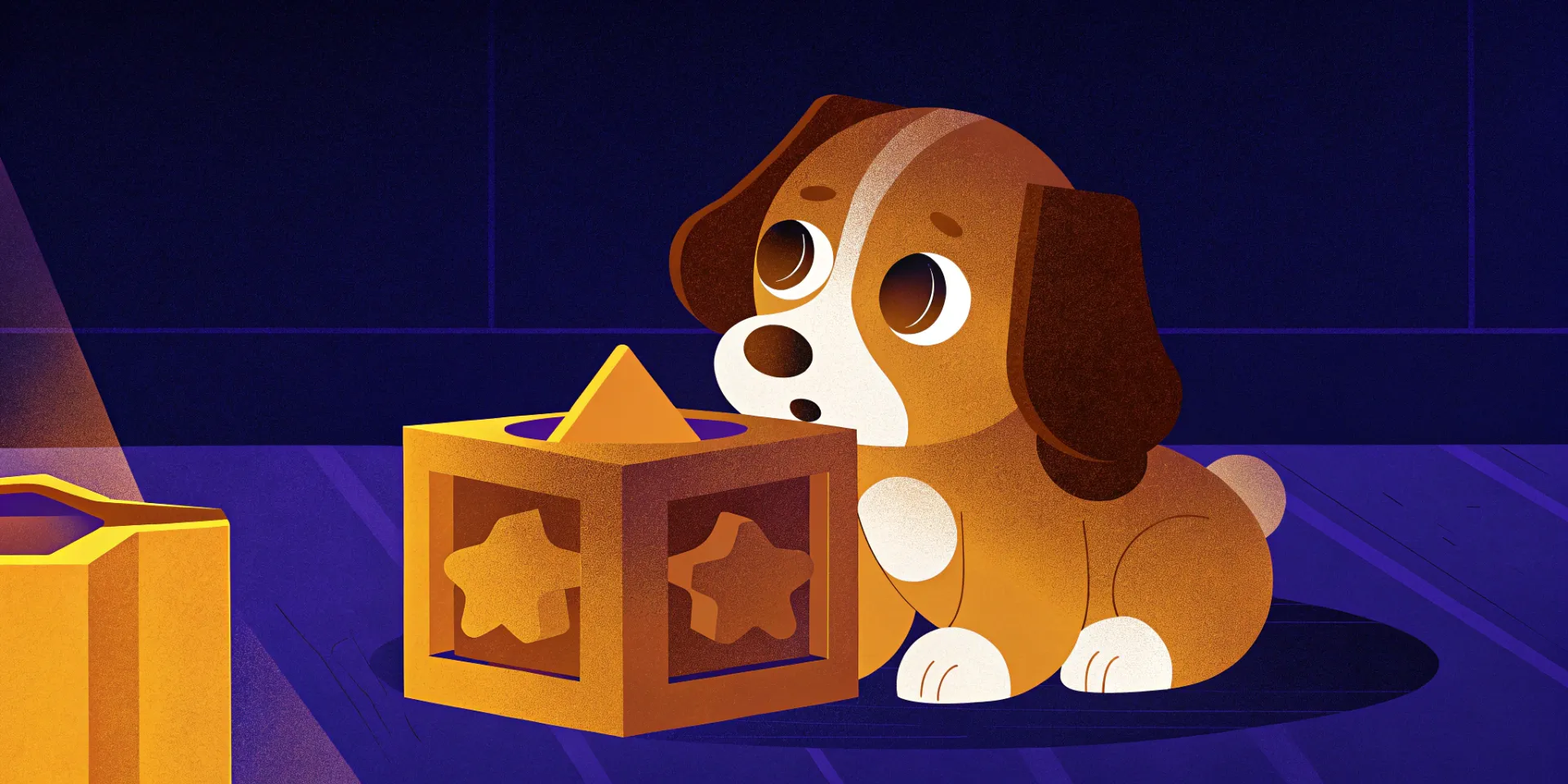 Image: A Beagle puppy intently working on a puzzle toy, trying to access the treats hidden inside.
Image: A Beagle puppy intently working on a puzzle toy, trying to access the treats hidden inside.
Socialization Through Play: Finding the Right Playmates
Socialization is key to raising a well-adjusted dog. Exposing your puppy to a variety of sights, sounds, and experiences, including other dogs, during their critical socialization period (typically up to 16 weeks of age) is crucial.
However, not all dogs are created equal when it comes to puppy playtime. Look for adult dogs that are patient, tolerant, and have good social skills. Avoid dogs that are overly boisterous or have a history of aggression. Supervise all interactions closely and be prepared to intervene if necessary.
I believe that puppy playdates should always be positive experiences. If you’re unsure about a dog’s temperament, it’s best to err on the side of caution. Supervised puppy playdates with older dogs can be beneficial for teaching them manners.
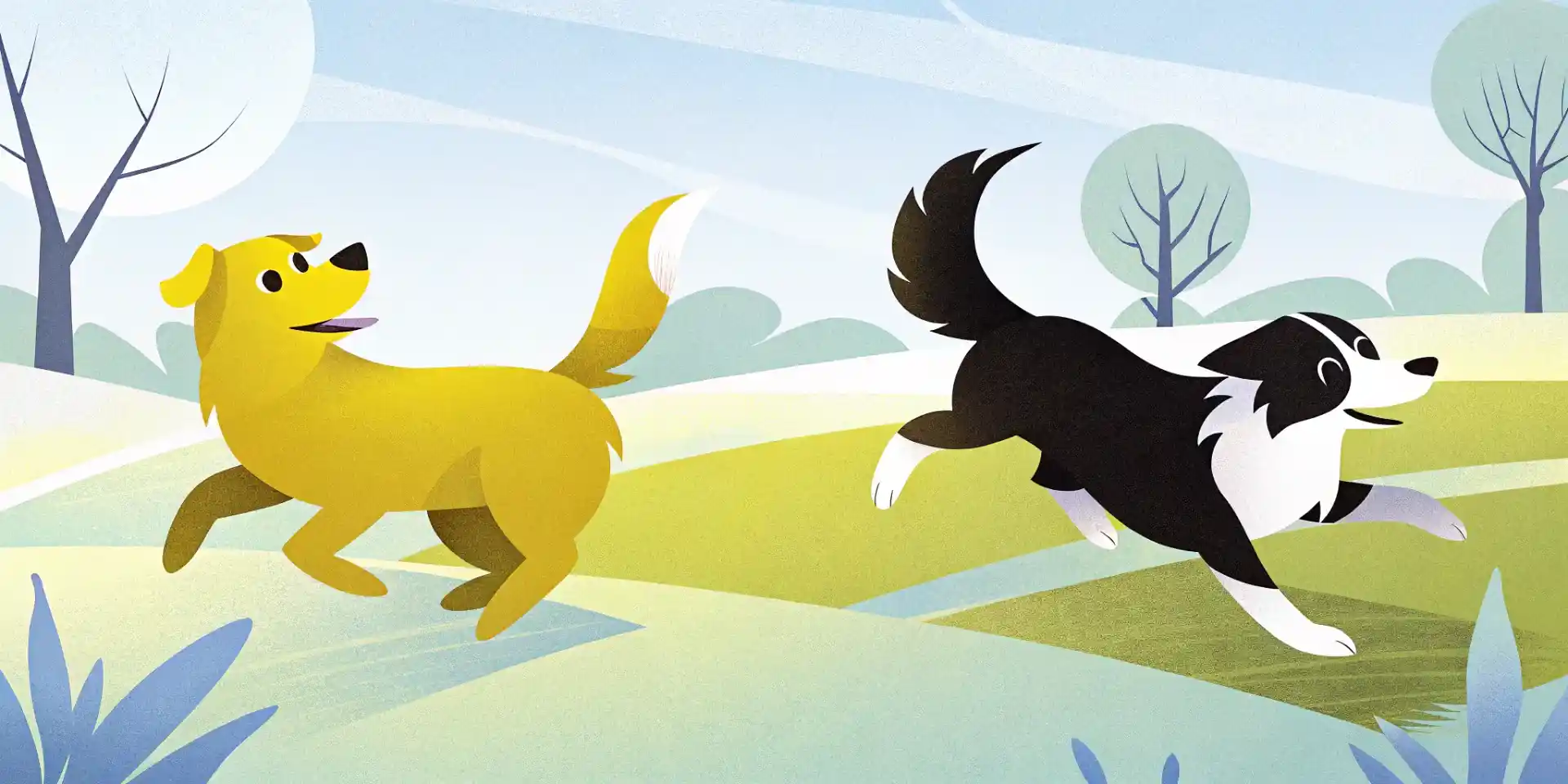 Image: Two young puppies, a Labrador and a Border Collie, playfully chasing each other in a grassy park, showcasing positive socialization.
Image: Two young puppies, a Labrador and a Border Collie, playfully chasing each other in a grassy park, showcasing positive socialization.
Common Mistakes to Avoid
- Overtraining: Pushing your puppy too hard, too soon can lead to injuries and exhaustion. Remember, they’re still growing!
- Ignoring Warning Signs: Pay attention to your puppy’s body language. If they’re showing signs of fatigue or discomfort, stop the activity.
- Unsupervised Play: Never leave your puppy unsupervised with other dogs, especially unfamiliar ones.
- Inconsistent Rules: Be consistent with your training and play rules. This will help your puppy understand what’s expected of them.
- Using Play as Punishment: Never use play as a form of punishment. This can create negative associations with playtime and damage your bond with your puppy.
The Long-Term Benefits of Playtime
Investing time and effort into puppy playtime is an investment in your dog’s future. By providing them with appropriate exercise, mental stimulation, and socialization opportunities, you’re setting them up for a lifetime of health, happiness, and well-being.
So, get out there and play with your puppy! Enjoy those precious moments of puppyhood – they grow up so fast! And remember, consistent socialization and training for puppies is essential for their development.
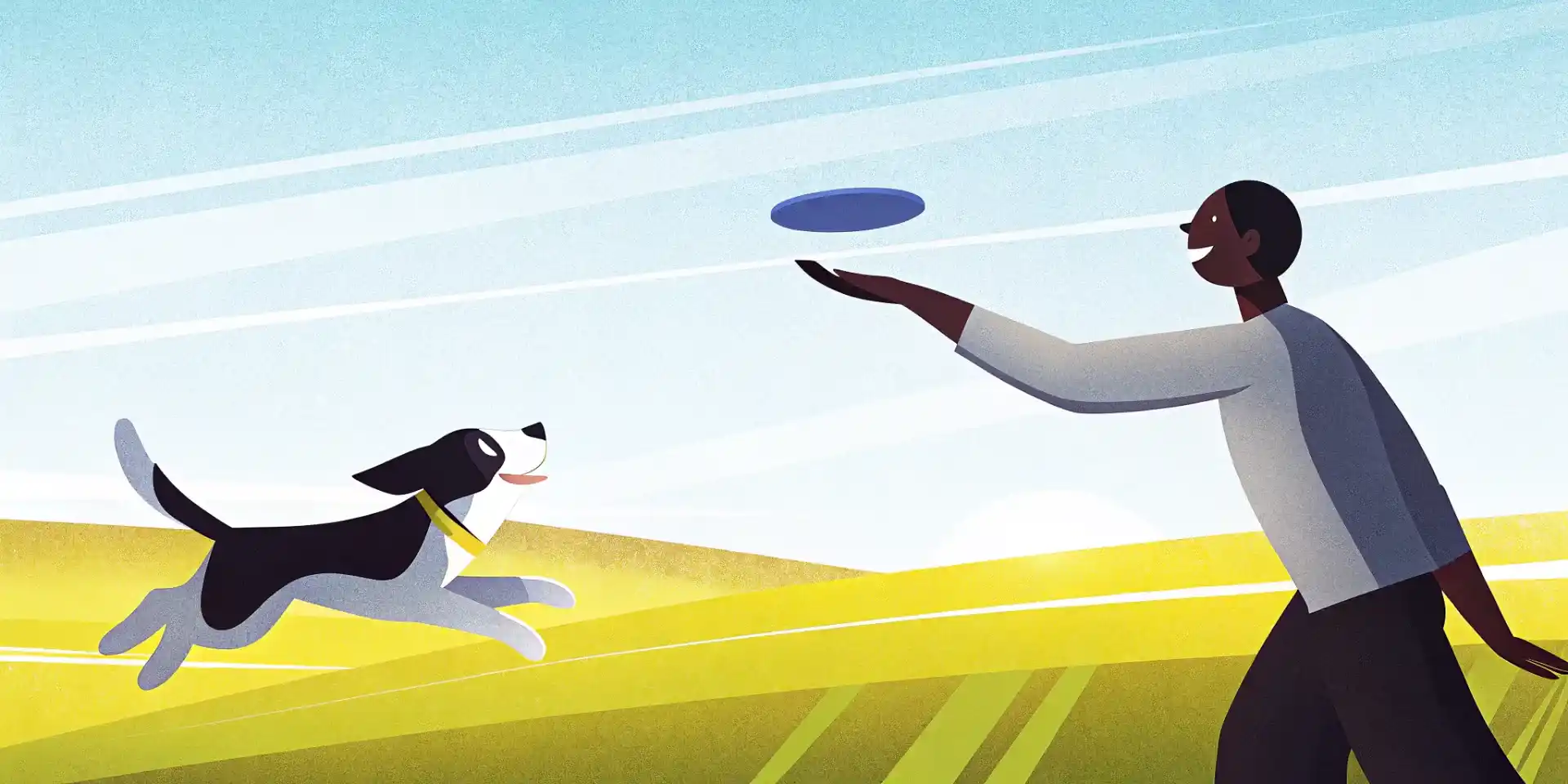 Image: A pet owner smiling and throwing a frisbee for their energetic puppy in a sunny field.
Image: A pet owner smiling and throwing a frisbee for their energetic puppy in a sunny field.
